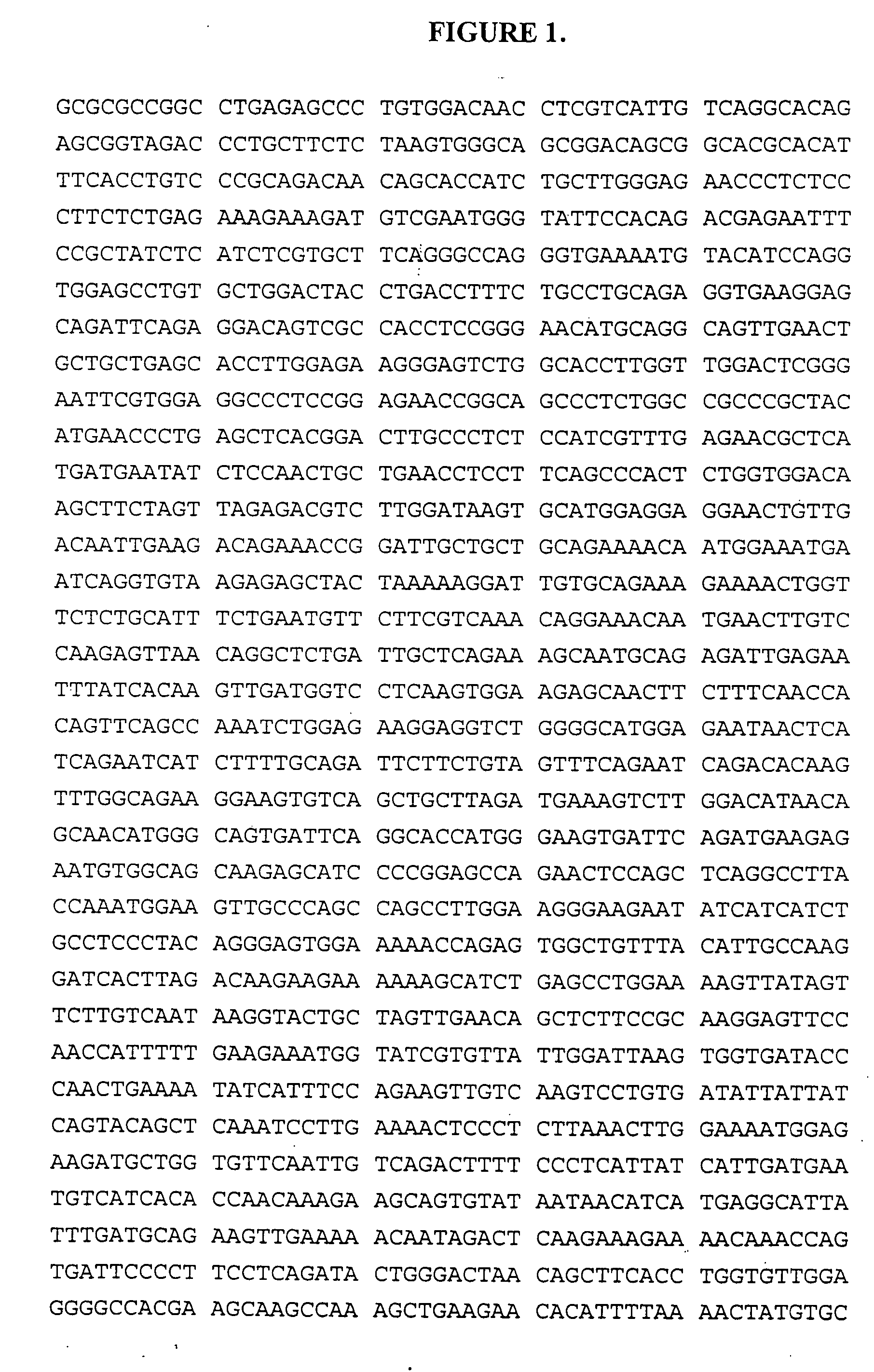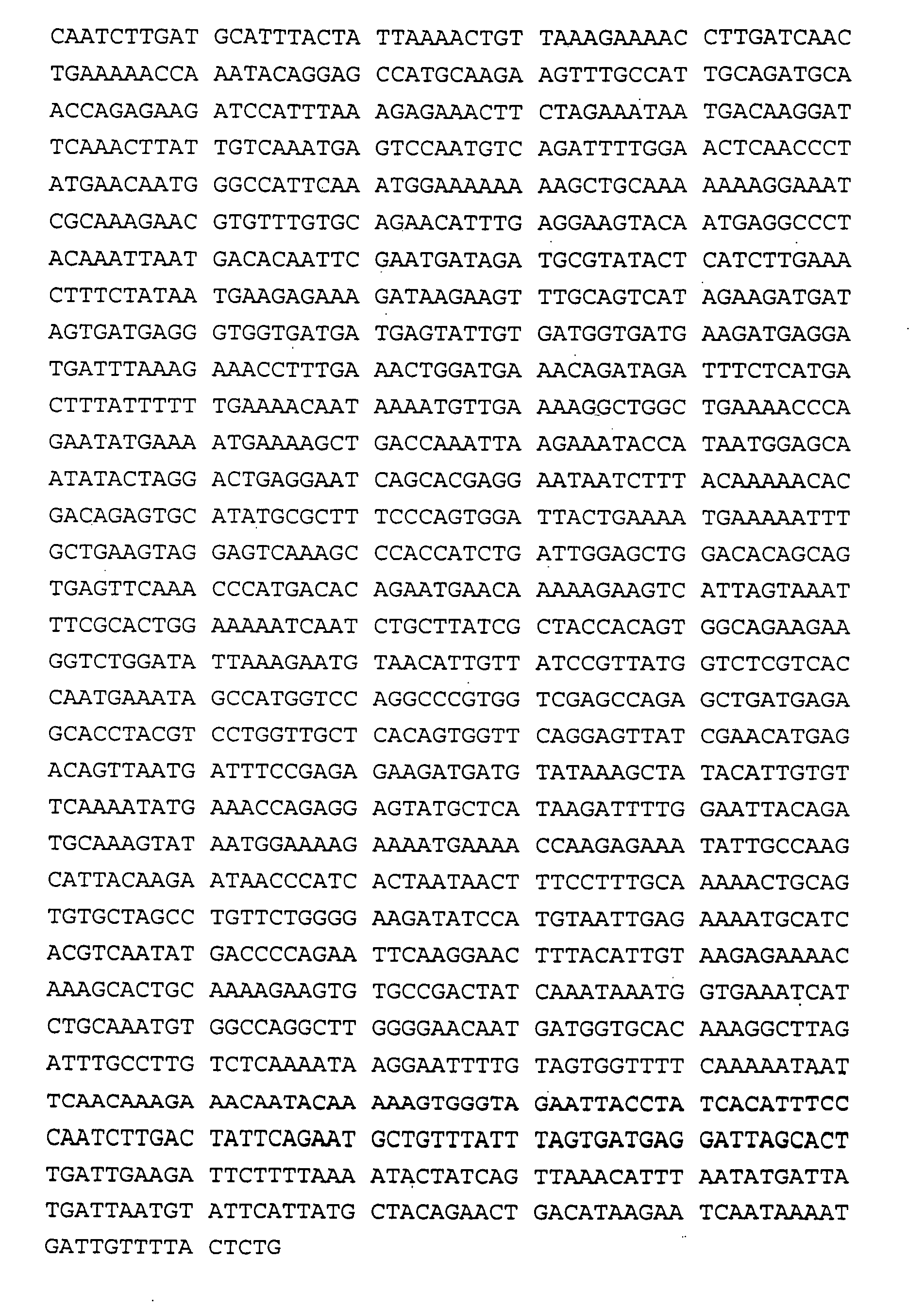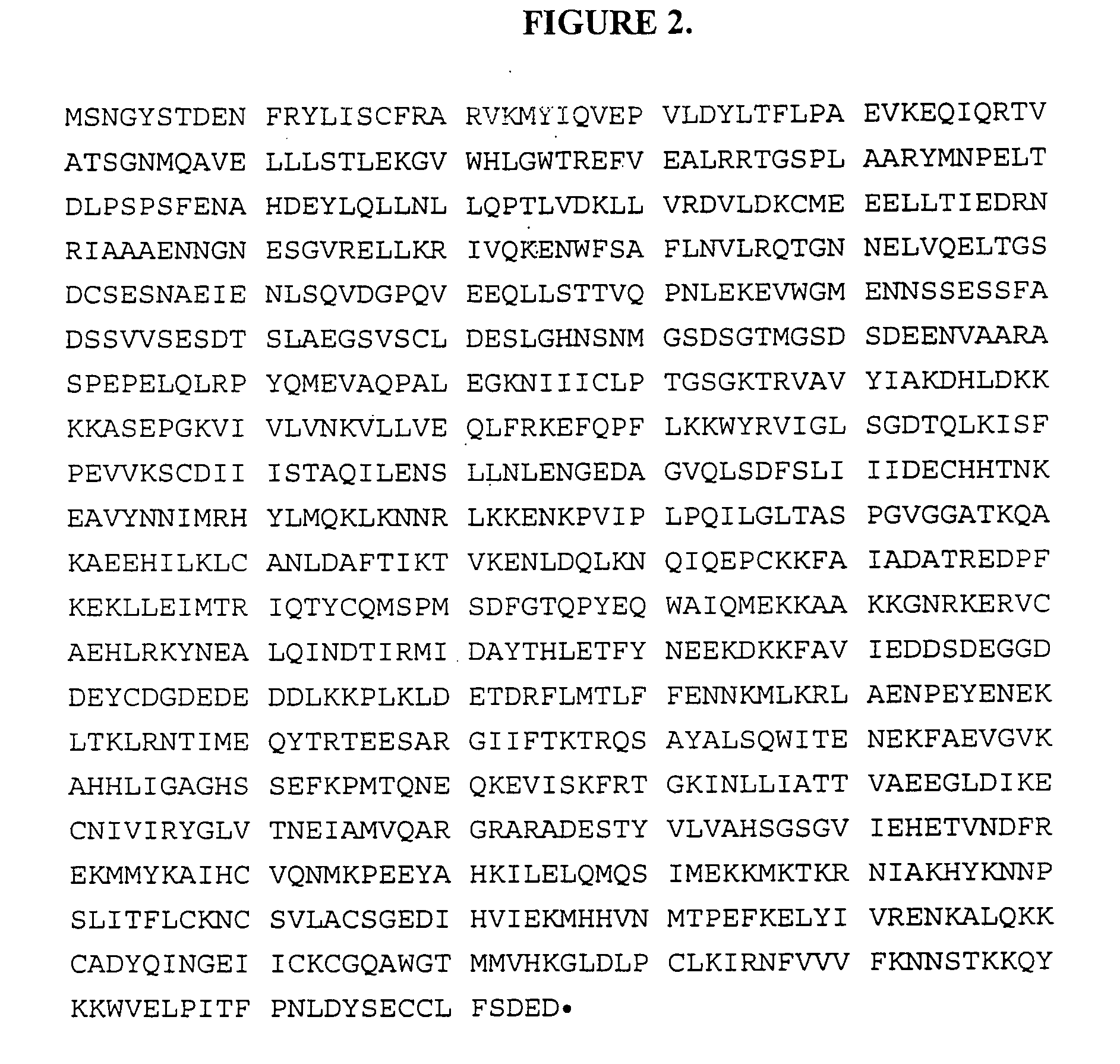Use of mda-5 as an antiviral and antiproliferative agent
a technology of antiviral and antiproliferative agents, applied in the direction of tumor specific antigens, drug compositions, peptides, etc., can solve the problems of uncontrolled proliferation, inability to respond to normal growth-inhibitory signals, and go awry
- Summary
- Abstract
- Description
- Claims
- Application Information
AI Technical Summary
Benefits of technology
Problems solved by technology
Method used
Image
Examples
working example
6. WORKING EXAMPLE
6.1 Materials and Methods
[0078] Cell Cultures. HO-1 human melanoma cells and 293 cells were grown as described (Fisher et al., 1985, J. Interferon Res 5:11-22). Sf9 cells were cultured in TNM-FH medium (Mediatech Laboratories, Cody, N.Y.) supplemented with 10% FBS and penicillin / streptomycin (100 units / 100 μg / ml) at 27° C. in a humidified incubator.
[0079] Cloning and Sequencing of mda-5. A partial mda-5 cDNA (3′, 1.8 kb) was cloned by screening a human placental cDNA library (CLONTECH; Ausubel et al., 1992. Short Protocols in Molecular Biology. Wiley:New York). The remaining 5′ region of the mda-5 cDNA (1.5 kb) was obtained by using a modified rapid amplification of cDNA ends approach. This approach involved an anchor primer instead of poly(A) or (G) tailing designed to anneal to the 5′ end of the mda-5 cDNA, followed by second-strand synthesis and subsequent PCR using an mda-5-specific reverse transcription primer to generate a full-length mda-5 cDNA.
[0080] Nor...
PUM
| Property | Measurement | Unit |
|---|---|---|
| molecular mass | aaaaa | aaaaa |
| apparent molecular mass | aaaaa | aaaaa |
| temperatures | aaaaa | aaaaa |
Abstract
Description
Claims
Application Information
 Login to View More
Login to View More - R&D
- Intellectual Property
- Life Sciences
- Materials
- Tech Scout
- Unparalleled Data Quality
- Higher Quality Content
- 60% Fewer Hallucinations
Browse by: Latest US Patents, China's latest patents, Technical Efficacy Thesaurus, Application Domain, Technology Topic, Popular Technical Reports.
© 2025 PatSnap. All rights reserved.Legal|Privacy policy|Modern Slavery Act Transparency Statement|Sitemap|About US| Contact US: help@patsnap.com



